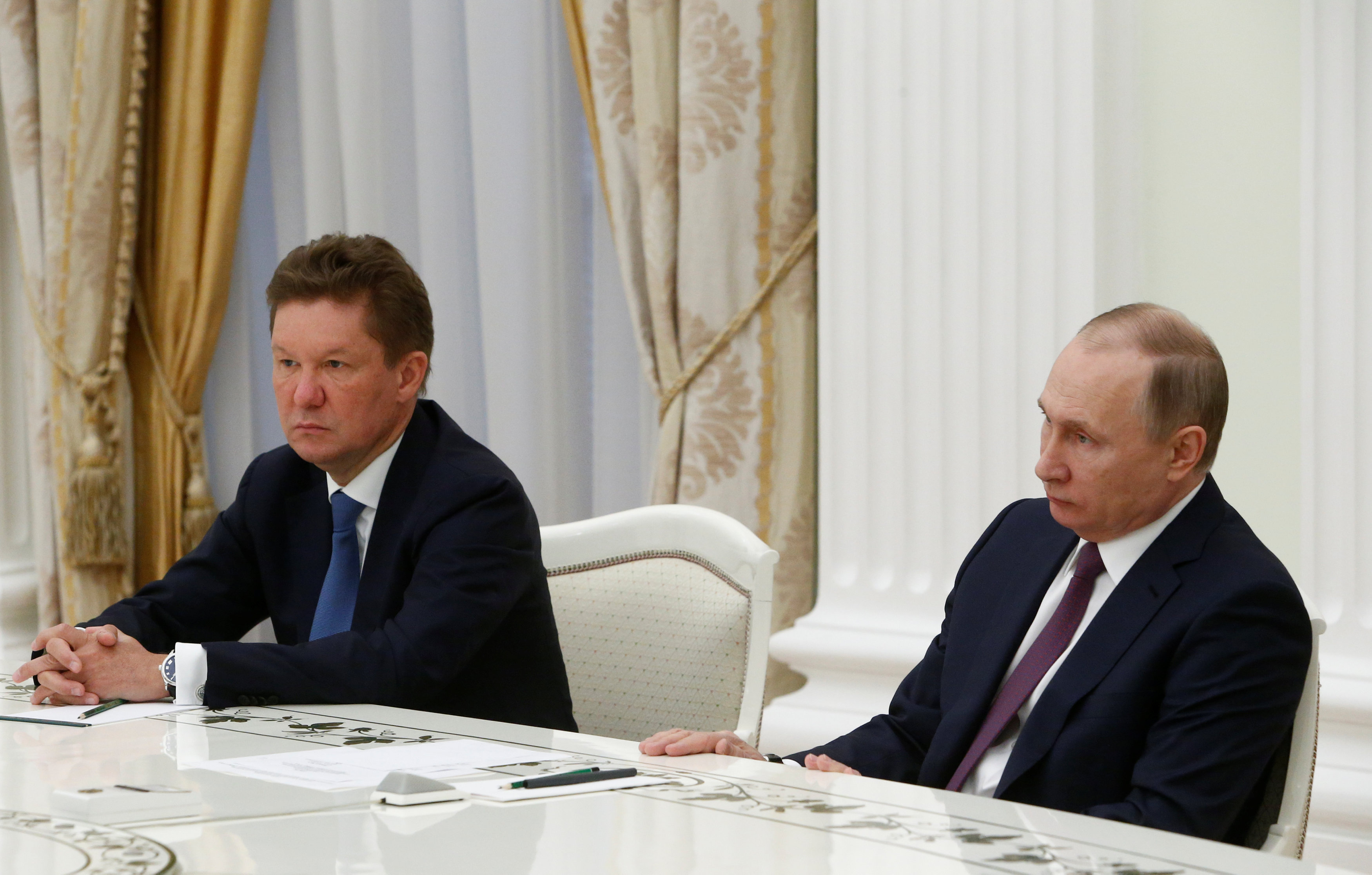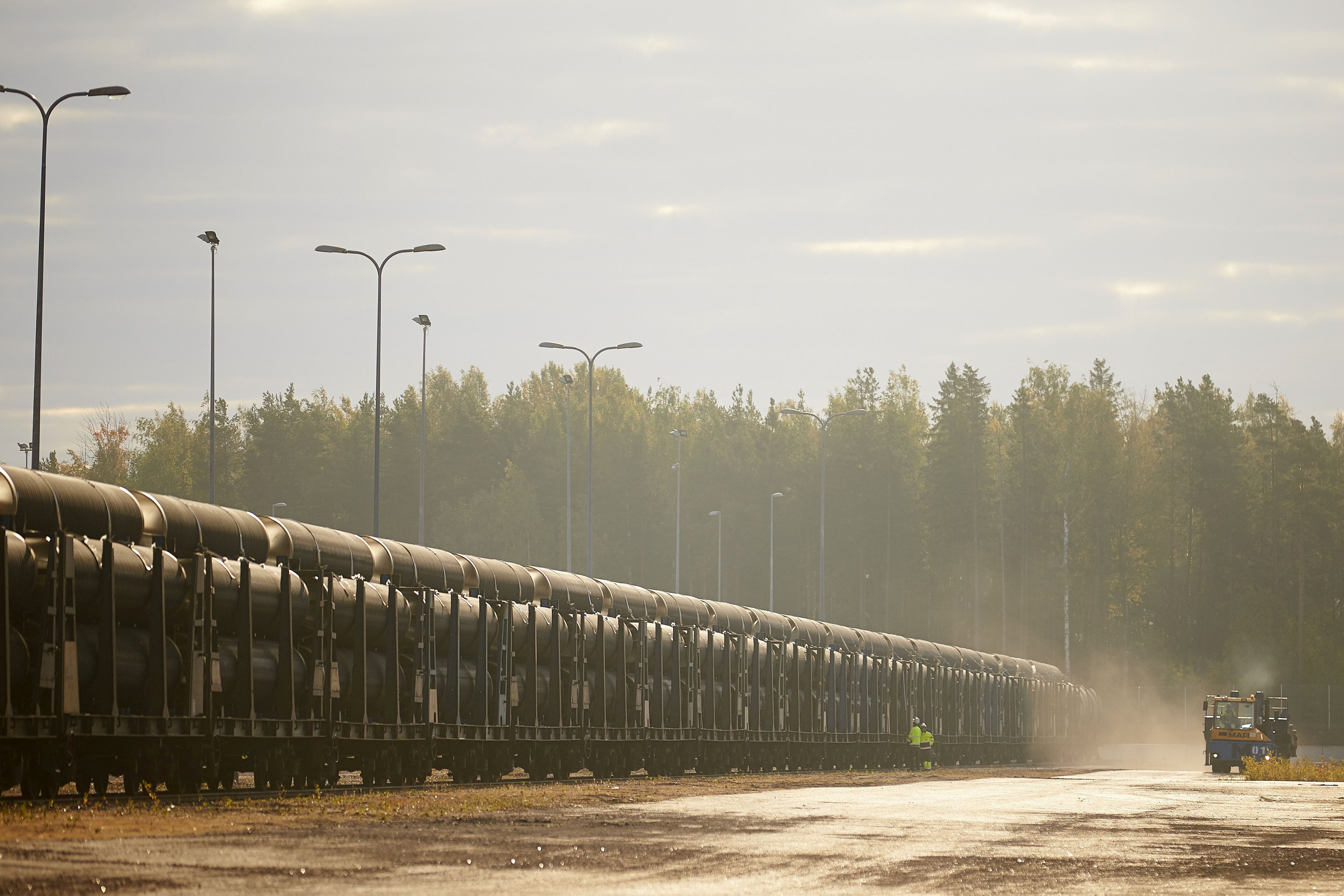Another big win for Russian pipeline politics in Europe?

A divisive Russian energy project dripping with geopolitical tension reached a major milestone this week. The Nord Stream 2 pipeline, which would pump natural gas from Russia into northern Europe, lined up financial backing from the western energy industry on Monday despite a barrage of protest from many European Union members fearful of Moscow’s hold on Europe’s energy supplies.
Five European energy companies agreed to foot half the bill for the controversial $10.3 billion project: Austria’s OMV, France’s Engie, the Dutch-British group Royal Dutch Shell, and Germany’s Uniper and Wintershall. Russia’s state-owned gas giant Gazprom would pay for the remaining half, but retain control of the project.
[EU stalls Russian gas pipeline, but probably won’t stop it]
Coming after a spate of failed Russian pipeline initiatives, landing the financing represents a big step forward for Gazprom. It would allow Russia to continue shipping natural gas to the heart of Europe without having to pump it through Ukraine – enabling Russia to avoid a transit state that has given it headaches in the past, and with whom it is currently embroiled in a simmering conflict.
“It’s a breakthrough,” Gazprom chief executive Alexei Miller told Reuters. “It’s a firm confirmation of foreign participation in the project, it’s an important financial basis for the project to be completed by the end of 2019.”
With a capacity of 55 billion cubic meters of gas a year, the Nord Stream 2 pipeline would double the capacity of Russia’s gas connection to European energy markets through northern Germany. Gazprom is slated to begin construction in 2018 and complete the pipeline – running from Russia’s massive Bovanenkovo gas field near the Baltic coast to Greifswald, Germany – in 2019. Three Russian companies and one German company will supply the pipelines for the project.

But Nord Stream faces strong legal and political headwinds at every turn, including suits Poland brought at the European Court of Justice. Poland and the Baltic states became outspoken opponents of the deal, saying it would allow Russia to tighten its energy noose around Europe and cut the gas flow from its pipelines that run through Ukraine. (Russian gas and oil still flows through Ukraine to Europe despite the two countries’ hostilities; both need the revenue).
The five European energy firms first signed an agreement with Gazprom to financially back the project in September, 2015, but Poland blocked the bid.
Gazprom’s pipeline that’s already online, Nord Stream 1, is currently only being used at half capacity, making some experts question the economic rationale – especially at a time of flat European demand for natural gas.
“Nord Stream 2 is a diversionary pipeline, it’s being built to get rid of Ukraine,” said Sijbren de Jong, an energy expert with the Hague Institute for Strategic Studies.
Yet other experts argue it’s a sound commercial decision, since it will ensure a steady flow of supplies with little transit risk to central Europe, and say that Nord Stream 1’s construction in 2012 didn’t turn out to be the geopolitical disaster some expected. Europe’s domestic gas production is expected to halve in the next two decades, and Gazprom needs to shore up its position in a market that still accounts for a massive chunk of its revenue.
But Gazprom developed a nasty habit of using energy as a political cudgel. It charged different countries different prices for gas, and on scores of occasions since the fall of the Soviet Union cut off or threatened to cut off energy supplies to coerce neighbors.
It cut off gas to Ukraine in 2006, the winter of 2008 to 2009, and most recently in 2015 as the Ukraine conflict flared up after Moscow’s illegal annexation of the Crimean peninsula.
[Is Europe caving to Russia on pipeline politics?]
Gazprom may have won the latest battle with the help of the five European energy firms, but the war’s not over. Despite western dollars to back the project, Gazprom remains the sole shareholder of the pipeline, which means big legal concerns still abound, said de Jong. And Denmark, Sweden, and Finland, EU members whose water the pipeline would traverse, still have to greenlight the project’s construction, posing another potential hurdle.
Earlier this year, the EU Commission determined EU energy laws didn’t apply to the offshore portion of Nord Stream 2. Brussels is hoping to hash out an agreement with Moscow on the project to mollify nervous EU members and defang any of Gazprom’s more nefarious geopolitical ambitions.
But Poland and friends can carry on the fight. “The jury is still out on this one and member states can always end up suing the [EU] Commission if they don’t like the outcome,” de Jong said.